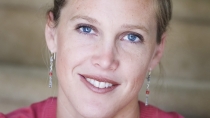The Vanishing American Vacation
Vacations are theoretical concepts that exist today only on paper. That’s according to Joe Robinson, work-life balance speaker, trainer, and author of “Don’t Miss Your Life.” His statistics are dire:
Some 25 percent of Americans and 31 percent of low-wage earners get no vacation at all anymore, according to the Center for Economic and Policy Research. This is because, unlike in 138 other countries around the world, you’re not entitled to a vacation longer than the current news cycle. You happen to live in a country that, along with the esteemed likes of Myanmar, the Guyanas and North Korea, has no minimum paid leave law to make vacations statutorily legit.
Now maybe it’s because I have been self-employed for most of my working life — and the few jobs I have held, I didn’t accrue enough time for a validated vacation — but for every day I have taken off, I have had to make up those hours either before I left or after I returned [Ed. – Me too!]. Which creates added stress either on the front end or the back end of this so-called “relaxing.” I have no recollection of a vacation in which I left everything on my desk as is, only to pick up after my return.
Does anybody really do that?
According to Jones, US employer would be wise to enforce vacations. These days off don’t subtract from the bottom line. They add to it. Especially what used to be the standard two weeks off. Writes Robinson in his Huffington Post blog:
Performance increases after a vacation, with reaction times going up 40 percent. Vacations cure burnout, the last stage of chronic stress and something very difficult to shake. Burned-out employees are a major liability to effective performance. They may be at the office physically, but output is next to nothing when cognitive, physical and emotional resources have been depleted. Vacations regather crashed resources and restore productive capacity. But it takes two weeks for the recuperative process to occur. Only 14 percent of Americans take more than one week of vacation at a time these days, according to a Harris poll….Performance increases with recharging and refueling, all the studies show.
Plenty of psychological studies attest to the benefits of vacation. Robinson mentions the one by Princeton’s Alan Krueger and Nobel-prize-winning researcher Daniel Kahneman that found that, of all the things on the planet (ants, elephants, and maybe plants?) human beings derive the most enjoyment from leisure and are happiest when they are involved in engaging leisure experiences.
Vacations are stress busters, too, of course. In fact, annual vacations cut the risk of heart attacks in men by 30 percent and by 50 percent in women. Leisure and rest build resiliency, and, as my doctor has told me plenty of times, it’s much easier to keep a person well, with less medication, than it is to improve a depressive state.
It’s true that most of us don’t get any assistance or incentive from our employers to take days off. However, I believe that, on some level, we are also afraid to change our environments and unplug for a bit. Because, as Richard Moss explains in his new book, Inside-Out Healing, allowing some down time in our lives isn’t always easy, even if we have accrued months of legitimate vacation time. He writes:
Taking a vacation can be notorious for stirring up the dark, as if something inside knows that the familiar daily busyness has been keeping you too distracted in ego-driven activity to attend to your soul’s calling. For the sake of essential regeneration and rebirth, you must go down into the abyss for awhile.
Perhaps this is why few people, especially in the US, ever allow themselves a real time of letting go. Instead they have a “vacation” (often restricted to a week) with a tight, demanding travel schedule where they have to see all the sights, try out all the best restaurants, and shop until they drop. Unstructured open time is too dangerous: the “monsters” from the deep that have been held at bay by compulsive or near compulsive activity might rear their ugly heads. The tragic truth of modern life is that it hardly leaves room for the necessary descent into the underworld that opens the heart, enriches humanity, and often rejuvenates the body.
I must confess. I totally get that. I think that’s one reason I haven’t attempted a retreat since college. They sort of scare me. I’m afraid I’m going to discover a really bad character defect that I’ll need to change, or another inner demon that I must add to the list. I’m uncomfortable with stillness.
I think most people are.
And yet, it’s in the stillness—in the quiet, unstructured space—that we are healed and made resilient to handle the bustling of our daily lives.
So if I can conjure up the courage, I just may try it this summer.
This article was originally posted on PsychCentral.

Therese Borchard Bio
Therese Borchard is the author of the hit daily blog “Beyond Blue” on Beliefnet.com.
Learn More